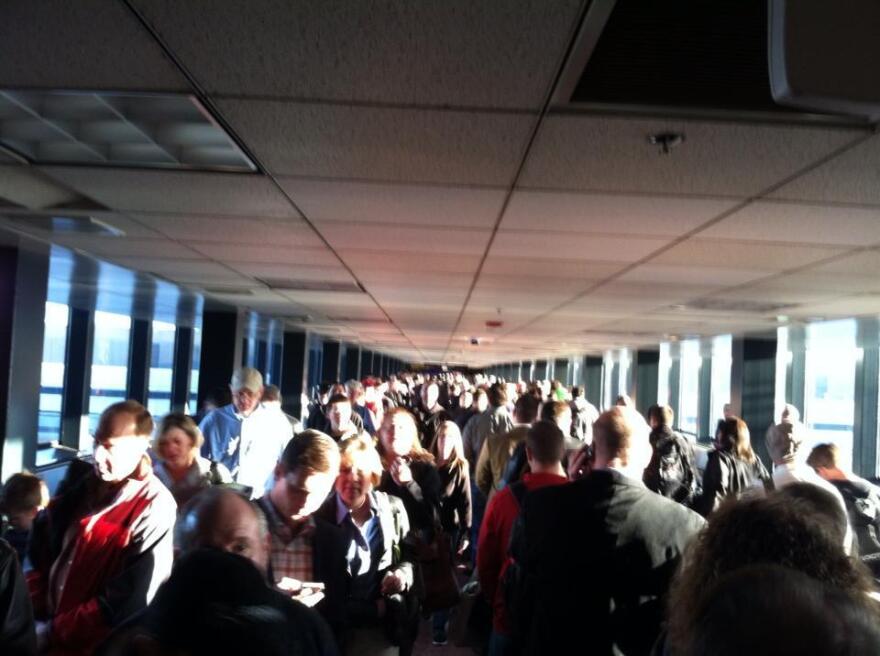The Transportation Security Administration today would not confirm there were any unusual delays in air travel caused by budget cuts.
But Salt Lake City resident and business traveler Ryan McCammon was happy to photograph and discuss his experiences. The frequent flier said that when he got to Salt Lake City International Airport this morning, he was stunned by the long, snaking lines of travelers trying to get through security check points.
"It seemed like a typical Monday until we got to security," he said. And then he and his fellow travelers stood slack jawed — "amazed" — to see huge lines of people eager to pull off their shoes, empty their pockets and get through the screening machines.
The lines were so long that the escalator had been turned off to allow people to back up on to the steps and then wrap back and forth through the building, he said. "Normally it would take me 15 minutes, 30 tops. And it took us over an hour" to clear the security check point, he said.
He took pictures and posted them on Facebook. Those photos led to a phone interview with NPR.
He said he asked TSA workers what the problem was, and they told him and other travelers that workers who normally would help relieve the Monday morning crowds were not on duty because they could not get overtime pay, thanks to sequestration.
After he made his way to the gate area, "there were a lot of people running around, obviously late for their flights," he said. He said the scene would discourage him from booking more flights until he knows more about what happens next with sequestration. "If a trip was non-essential, I'd postpone it," he said – saying the words airlines dread.
TSA spokeswoman Lorie Dankers said she could not comment on McCammon's experiences in Salt Lake City, or confirm there were any problems. But the agency put out a statement saying that as budget cuts settle in, "travelers can expect to see lines and wait times increase as reductions to overtime and the inability to backfill positions for attrition begin to occur this month."
Copyright 2021 NPR. To see more, visit https://www.npr.org. 9(MDEwMTk5OTQ0MDEzNDkxMDYyMDQ2MjdiMw004))





